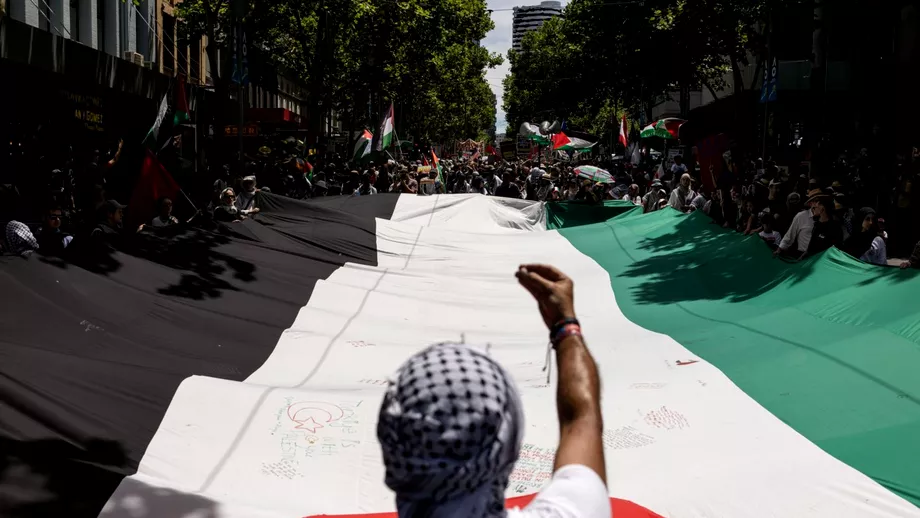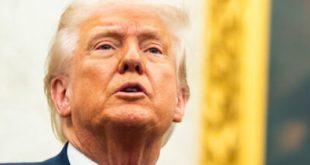In an effort to combat anti-Semitism, former US President Donald Trump signed an executive order leading to a significant policy change.
This order affects foreign students and individuals involved in pro-Palestinian protests, paving the way for their deportation back to their home countries. The Justice Department is set to take immediate action as detailed in a brief explaining this executive order.
Increased Punitive Measures for Protest Participants

The Trump administration is taking firm steps to address what it perceives as a surge in anti-Semitic activities on campuses and streets across the country.
This new order focuses on prosecuting threats posed to American Jewish communities, including of acts of terrorism, arson, vandalism, and violence.
The significance of this policy was amplified following the attack on Israel by Hamas on October 7, 2023. Trump made it clear that foreign residents participating in what he termed “pro-jihadist” protests would face deportation in 2025.
Additionally, visas for students expressing pro-Hamas sentiments on university campuses would be swiftly revoked.
The Situation on US Campuses
With the end of protests under the “Free Palestine” banner in the US, the nation has seen stirring tensions on its college campuses.
Over the past months, these demonstrations have significantly increased incidents of anti-Semitic, anti-Arab, and Islamophobic acts. Tensions in the Middle East, particularly between Arab communities and Israel, have influenced these developments.
Under this order, agency and department heads have been tasked with presenting recommendations for both criminal and civil methods to the White House within 60 days, aimed at combating anti-Semitism. Furthermore, the order calls for the deportation of foreign residents who have violated US laws.
Controversy and Criticism from Human Rights Organizations
Human rights organizations have raised concerns over this executive order. Evidence presented indicates that the protests, labeled as pro-Hamas, involved vandalism, intimidation, blockage of access to Jewish students, and acts against synagogues.
However, many protesters deny any association with Hamas, insisting that their protests were directed against Israeli military actions in Gaza, which saw over 45,000 fatalities.
The Trump administration faces criticism from groups like the Council on American-Islamic Relations, who argue that the order impedes free speech and undermines Palestinian humanity while claiming to fight anti-Semitism. Critics have characterized the measure as dishonest, excessive, and unenforceable.
Political Promises and Immigration Policies
Trump has maintained a staunch stance against pro-Hamas supporters since his 2024 campaign. On taking office, he signed an order to reinstate travel bans affecting primarily Muslim or Arab-majority countries, continuing his administration’s strict immigration policies.
Critics argue that these measures disproportionately affect specific communities, reigniting debates on freedom and security.
Trump’s executive order compelling expulsion of protest participants represents a defined push through his broader policies on law and immigration.
This initiative is among many designed to address what he refers to as radicalism infesting campuses, focusing specifically on students associated with pro-Hamas activities.
We invite you to reflect on this topic. Share your thoughts or experiences with us as the conversation continues!
 Viral Hatch US/UK No.1 News Portal
Viral Hatch US/UK No.1 News Portal







